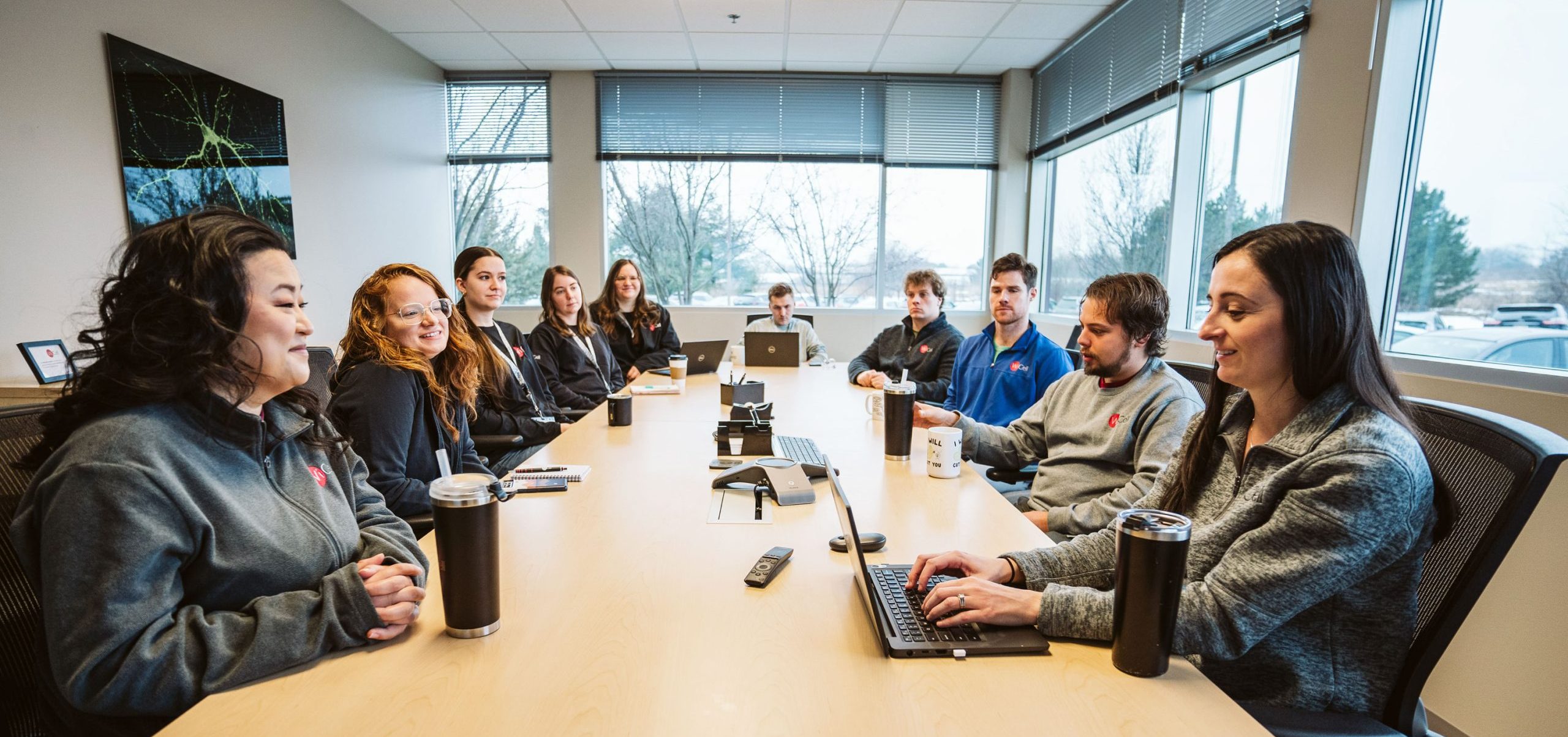A Legacy of Trust and Excellence in Stem Cell Research
Headquartered in Madison, Wisconsin, WiCell is a supporting organization of the University of Wisconsin–Madison, a world leader in the area of human pluripotent stem cell research. WiCell is a nonprofit organization established in 1999 to advance stem cell technologies. The global leader in cell banking, characterization testing and distribution of stem cell lines, WiCell builds on these core strengths by also providing characterization testing for a wide variety of cell types, clinical grade stem cell lines, quality control testing, contract cell banking and long-term LN2 storage services.
Our Mission
The mission of WiCell is to support regenerative medicine and cell and gene therapy by promoting best practices in cell banking and characterization and providing high quality materials and testing services to advance research and clinical applications at UW-Madison and globally.
Our History
In 1998, University of Wisconsin researcher Dr. James Thomson succeeded in isolating and culturing human embryonic stem cells for the first time. Recognizing the potential of these unique cells, and aware that regulations surrounding their use in a university setting were unclear, the Wisconsin Alumni Research Foundation established WiCell in 1999 as a safe haven for the advancement of stem cell research in the politically charged environment of the time.
As a nonprofit research institute, WiCell has consistently worked to advance stem cell technology through research, education and technical support for the scientific community. WiCell established the first comprehensive training program for human embryonic stem (hES) cells that provided instruction to more than 800 scientists from around the globe during its tenure. From 2005 through 2010, WiCell hosted the National Stem Cell Bank, which collected, banked, characterized and distributed the 21 hES cell lines approved for federal funding in the U.S. by then President George W. Bush. WiCell received the highest rating possible from the NIH at the completion of the NIH National Stem Cell Bank contract.
As advancements in technology led to the derivation of human induced pluripotent stem (iPS) cells, WiCell expanded its cell line offerings to include both iPS and modified cell lines, forming the WiCell Stem Cell Bank. Today, WiCell’s Stem Cell Bank is home to a growing number of cell lines offered across a variety of culture platforms. The collection contains cell lines submitted from researchers around the globe and includes the original National Stem Cell Bank lines as well as many modified cell lines useful as research tools.
WiCell now offers services developed in conjunction with the Stem Cell Bank to both academic and commercial groups. Established in 2005, WiCell’s characterization laboratory provides genetic testing including GMP compliant testing services, karyotyping by G-band, fluorescence in situ hybridization (FISH), microarray analysis, short tandem repeat (STR) analysis and mycoplasma testing. Product screening and quality control testing using human pluripotent stem cells also are available through our core laboratory. Additionally, our highly experienced banking and distribution team offers contract cell banking services to outside organizations, as well as long-term liquid nitrogen storage. All offerings are made available on a fee-for-service basis.
WiCell’s Support for University of Wisconsin-Madison
WiCell provides extensive support to the University of Wisconsin–Madison through our core services, helping the University remain a leader in stem cell research and technology. This support includes providing pre-qualified reagents, including media, media components, matrices, MEFs, and antibodies, ensuring that researchers have reliable materials for their experiments at reasonable costs. Additionally, WiCell offers a full range of cytogenetic testing services (karyotype, FISH, SNP microarray) to support the integrity and stability of cell lines throughout research projects. WiCell also conducts mycoplasma testing and STR authentication testing for any UW laboratory needing these services.
Researchers also have access to high-quality, well-characterized cell lines from the WiCell Stem Cell Bank, providing a solid foundation for a variety of studies. WiCell’s technical assistance team is available to support researchers throughout their projects, offering expertise and guidance. For those needing space for hands-on work on a short-term, emergency-use basis, WiCell provides fully equipped laboratory space that can accommodate most stem cell research activities. Additionally, WiCell offers long-term storage solutions, including liquid nitrogen (LN2) storage options, to safely preserve and back-up your valuable biological materials.
To help researchers secure funding, WiCell also provides grant writing assistance, including support with budgeting and planning for core services.
For a complete and up to date list of services, UW researchers can access the WiCell section of the UW Stem Cell and Regenerative Medicine website, the UW Core Services page for WiCell, or contact WiCell directly for further details.
Timeline
1998
- Dr. James Thomson succeeded in isolating and culturing human embryonic stem cells for the first time
1999
- Wisconsin Alumni Research Foundation establishes WiCell as a safe haven for the advancement of stem cell research
2005
- WiCell named as host of NIH National Stem Cell Bank
2006
- WiCell’s cytogenetic lab is established
2010
- WiCell begins to offer commercial characterization services
- WiCell successfully completes the contract for National Stem Cell Bank and establishes WiCell Stem Cell Bank
2014
- WiCell moves to new space in UW Research Park
2015
- WiCell named as distributor of National Heart, Lung, and Blood Institute (NHLBI) human pluripotent stem cell lines created as part of the institute’s Next Generation Association Studies (Next Gen)
2020
- WiCell launches WiCellSAFE long-term LN2 storage
2021
- WiCell launches cGMP karyotype and FISH assays
2024
- WiCell launches cGMP STR testing
2025
- WiCell opens dedicated cGMP lab for cell characterization and testing services
